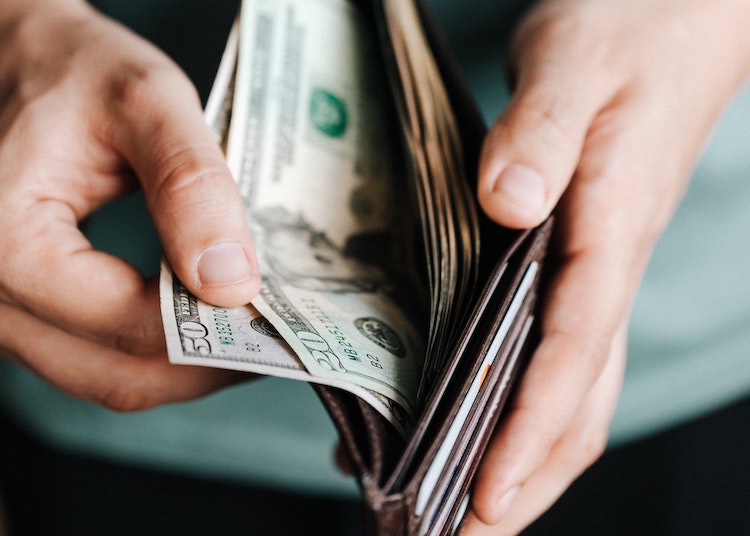States Are Now Mailing Out Inflation Relief Checks
This article is more than 2 years old

As inflation hovers near its 40-year high, consumers continue to struggle with high prices on nearly everything. Now, at least 20 states are offering expanded tax credits or one-time rebates to provide a bit of inflation relief to those who need it most. Republican and Democratic governors alike are providing the payments via budget surpluses leftover from federal COVID-19 relief funds.
While certain states have already delivered the inflation relief payments, others will begin distributing them next year. Recipients must meet certain income qualifications and people with dependents often receive more than those without. Every state has its own way of distributing the benefits and more states may soon announce new inflation relief payments.
California residents began receiving relief checks of up to $1,050 in October. The direct deposits or debit cards will arrive by early 2023. The state has provided the Middle-Class Tax Refund Estimator tool to check eligibility.
Colorado residents who filed a 2021 tax return by June 30 have likely already received their inflation relief tax refund. Single filers were eligible for $750 while joint filers could receive up to $1,500. Taxpayers who received an extension and met the filing deadline will receive their refund by the end of January 2023.
Connecticut provided inflation relief via a “child tax rebate” for up to $250 per child, for a maximum of three children. Recipients had to apply for the rebate by the end of July and started receiving payments in late August. Qualifying taxpayers in Delaware have already received their $300 per person payments as well.
In Florida, Governor Ron DeSantis distributed inflation relief checks to the state’s neediest families in late summer. Recipients of the $450-per-child payments included foster parents, caregivers, and families receiving funds via the Florida Temporary Assistance for Needy Families program or the Guardianship Assistance program. Around 59,000 families qualified for the checks.
Georgia’s historic budget surplus funded rebate payments to those who filed both 2020 and 2021 tax returns. Single filers received up to $250 while heads of household received up to $375. Married couples filing jointly qualified for a maximum payment of $500.
Hawaii residents earning less than $100,000 in 2021 have likely already received a tax rebate of $300. Those who earned more than that got a one-time payment of $100. Idaho’s inflation relief payments were also low, with each taxpayer and dependent receiving $75 or 12% of their 2020 state tax liability, whichever was greater.
An Illinois family of five could receive up to $400 in tax rebates after the state approved a $1.83 billion inflation relief package earlier this year. Individuals who earned less than $200,000 in 2021 will receive $50 and couples who earned less than $400,000 will receive $100. Each dependent claimed on 2021 taxes will bring in another $100 each, up to three dependents per family.
Indiana began giving out $125 inflation relief payments in May to all state residents, regardless of income. They later added an additional $200 payment. In Maine, 2021 taxpayers could qualify for up to $1,700 in relief funds.
Massachusetts residents who pay their state income taxes and file a 2021 return by October 2023 can get a stimulus tax refund worth about 14% of their state tax liability. Residents can use this calculator to find out how much inflation relief may arrive by the end of December. In Minnesota, only frontline workers were eligible for a $750 payment that had to be applied for by July 22.
Residents of neighboring states New Jersey and New York received similar property tax rebates ranging from $450 to $1500. While New York residents began receiving payments in June, New Jersey residents have until December 30, 2022, to apply. Qualifying residents of New Mexico have already received inflation relief checks in June, boosted by another $250 via an August rebate program.
Oregon delivered their one-time inflation relief payments of $400 to low-income residents who claimed the earned income tax credit on their 2020 state tax returns. Pennsylvanians have until December 31 to apply for a property tax and rent rebate program that could provide up to $975 in relief. The myPATH program is intended for people with disabilities and older homeowners and renters.
Rhode Island families with a gross income of $200,000 or less and individuals earning $100,000 can qualify for a child tax rebate providing up to $750 in inflation relief. South Carolina has not yet released details on how to obtain a one-time payment of up to $800 but is expected to by the end of the year. Qualifying Virginia residents had to file their state taxes by November 1 to receive a one-time tax rebate of up to $500.



